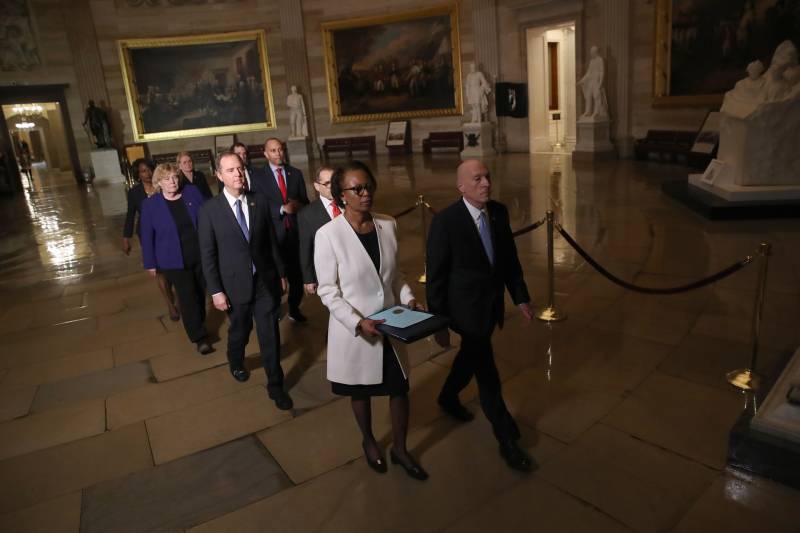Seeking a fair trial
With the formal handover, Senate Majority Leader Mitch McConnell takes the reins from Pelosi. He is establishing rules for the trial that his chamber will vote on.
White House press secretary Stephanie Grisham said on Wednesday that Trump "looks forward to having the due process rights in the Senate that Speaker Pelosi and House Democrats denied to him, and expects to be fully exonerated."
The exact ground rules for Trump's trial remain unclear. Democrats have demanded that the Senate call additional witnesses, potentially including former national security adviser John Bolton, who has said he is willing to testify if subpoenaed. But McConnell has resisted, saying Tuesday that the "more contentious issue" of calling witnesses will be addressed later.
"The Senate is on trial as well as the president," Nadler said after being named one of the House impeachment managers. "Does the Senate conduct a trial according to the Constitution, to vindicate the republic, or does the Senate participate in the president's crimes by covering them up?"
McConnell has sought to adhere to the procedure established in the Clinton impeachment trial in 1998, which allowed for a vote to dismiss the charges, as well as a vote on hearing additional testimony once opening arguments were made.
Trump has sought to have the Senate dismiss the charges, arguing that he did nothing wrong, but McConnell said Tuesday, "There is little to no sentiment in the Republican conference for a motion to dismiss."
Next steps ahead of the trial
On Thursday, the impeachment managers are expected to read the House resolution that appointed them as well as the articles of impeachment in full – on the Senate floor.

9(MDAxOTAwOTE4MDEyMTkxMDAzNjczZDljZA004))